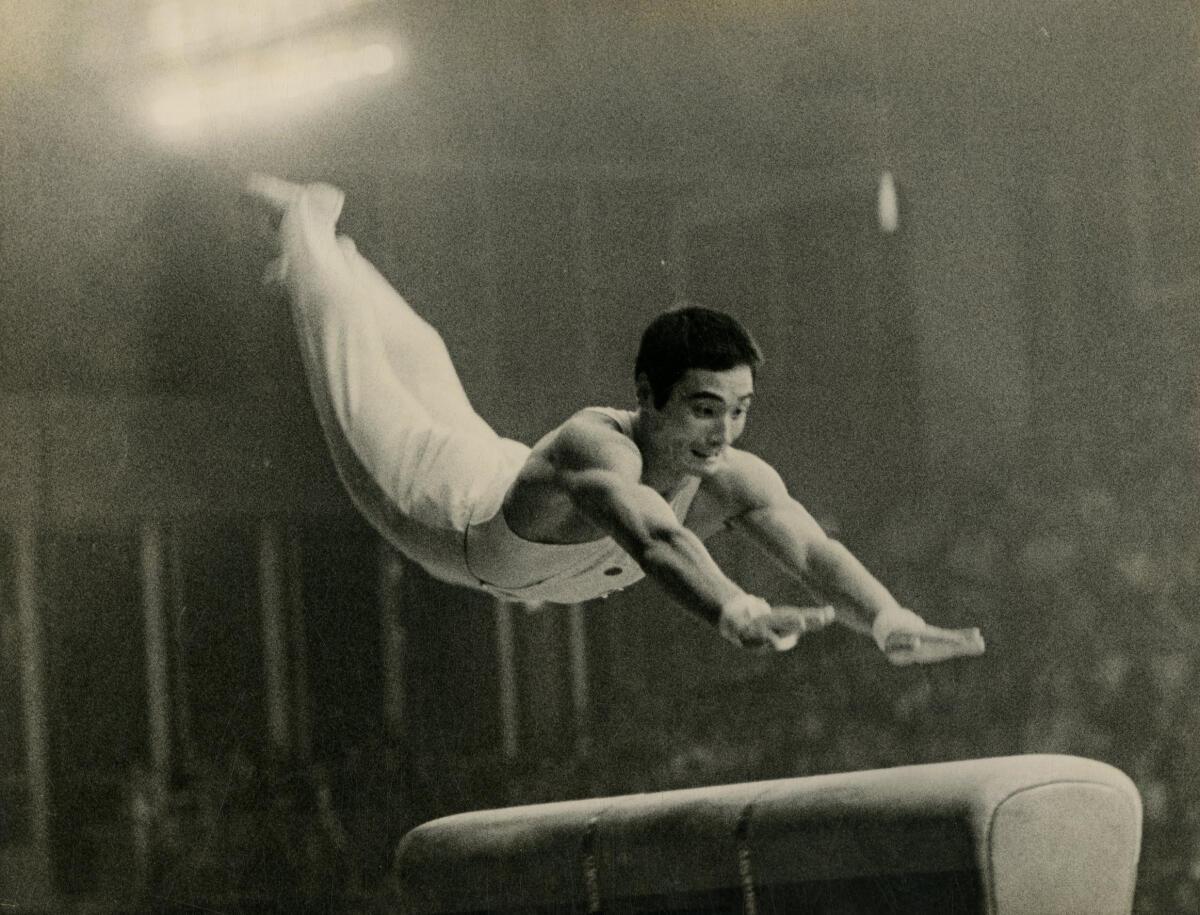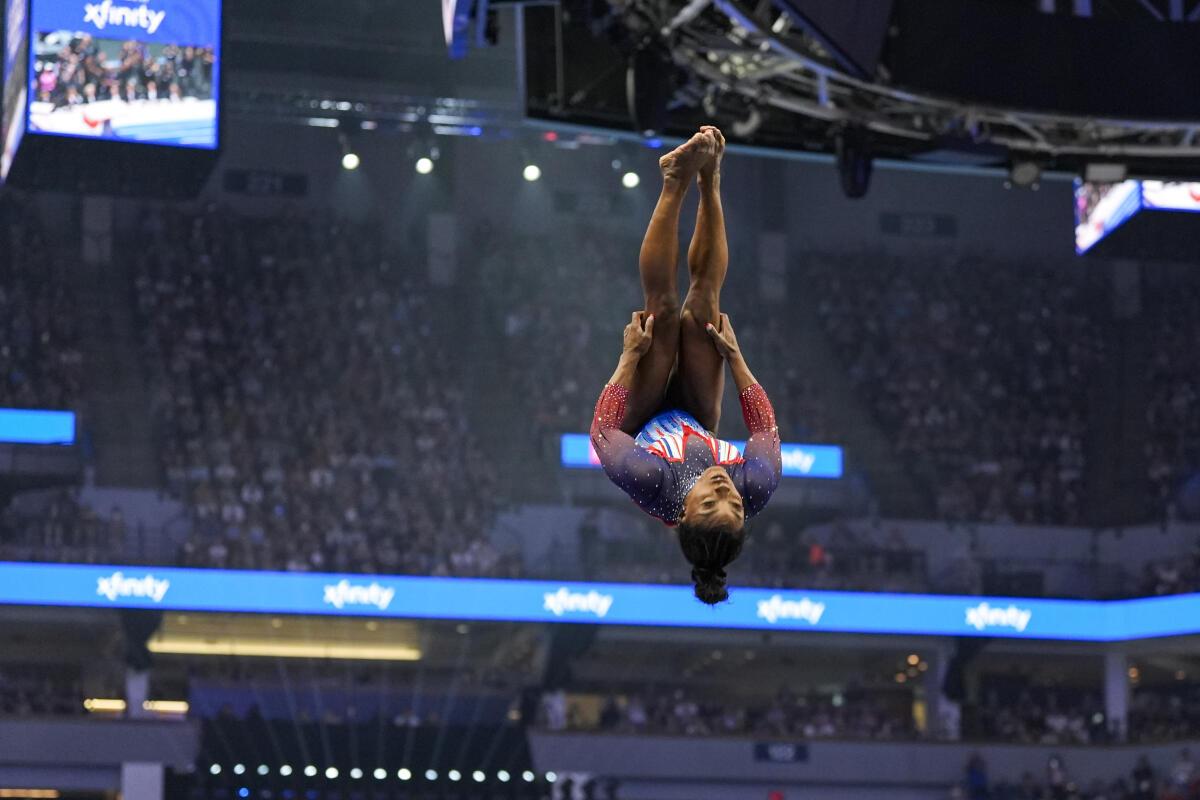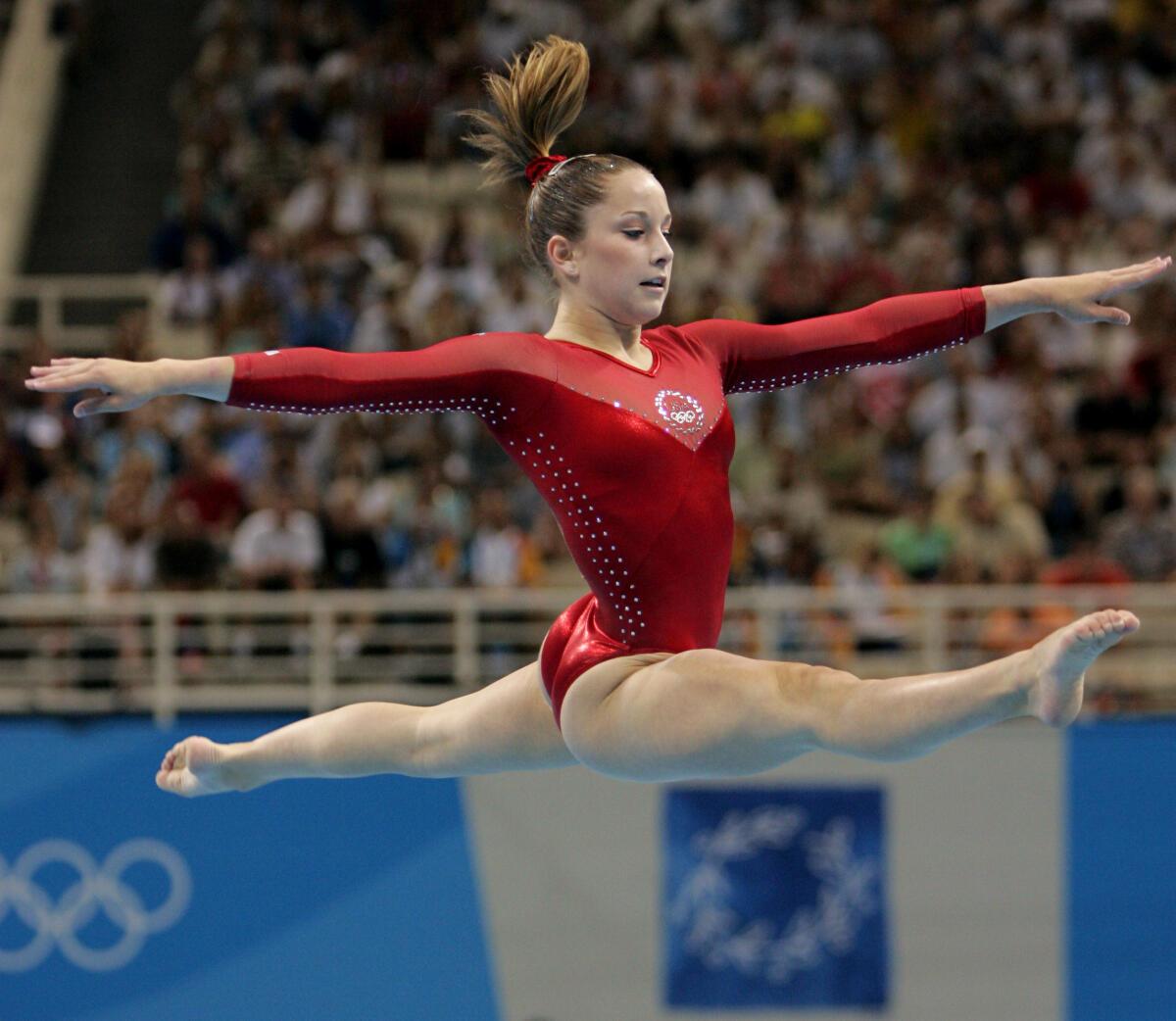Paris 2024: From Produnova to the Biles, top gymnastics moves named after athletes
Several gymnastics skills and moves have been named after athletes who have either perfected them or been the first to perform them. Simone Biles, the most decorated gymnast in history, and the legendary Yelena Sergeyevna Produnova are some of the gymnasts who have been accorded this honour.
Vaults Named After Gymnasts
1. Tsukahara:
The whole Tsukahara branch of vaulting maneuvers was named after one gymnast. A Japanese gymnast, going by the name of Mitsuo Tsukahara, performed this form of twisting at the 1970 World Championships for gymnastics.
Though at first there was only one vault, that has now been expanded so that there is a whole line of Tsukahara vaults that start with the same entry. To do this type of entry onto the vaulting table, the gymnast has to use a normal front handspring, but in this case a half-turn too so that the gymnast lands with their hands on the vaulting table facing away from the runway.

Mitsuo Tsukahara of Japan in action during the long horse vault event at the 17th World Gymnastics Championships at Ljubljana, Yugoslavia on October 30, 1970.
| Photo Credit:
THE HINDU ARCHIVES
Mitsuo Tsukahara of Japan in action during the long horse vault event at the 17th World Gymnastics Championships at Ljubljana, Yugoslavia on October 30, 1970.
| Photo Credit:
THE HINDU ARCHIVES
2. Yurchenko:
Like the Tsukahara vaults, the Yurchenko was also named after a gymnast. In this case, it was a Soviet gymnast by the name of Natalia Yurchenko in 1982 during a competition in Moscow.
This branch of entries onto the vault are the most drawn-out and the hardest. In order to do this move, the gymnast has to do a round-off and land at the end with their feet on the springboard and facing away from the vaulting table. When they bounce off the springboard, they do a backflip onto their hands on the vaulting table and then perform any number of other moves to finish off the end of the vault.
3. Biles:
This skill, named after Simone Biles, was added to the Code of Points for the International Federation of Gymnastics in 2018. This skill is in the Yurchenko family of vaults as it starts off with a round-off back-handspring with a half-turn for the entry.
Because of the fact that the round-off has a half-turn to it and there is another half-turn onto the vaulting table, the gymnast ends the entry with their hands on the vaulting table and facing away from the runway. To end this vault, one has to perform a stretched salto forward with a double turn to it before landing.

Simone Biles competes on the vault at the United States Gymnastics Olympic Trials in June 2024.
| Photo Credit:
AP
Simone Biles competes on the vault at the United States Gymnastics Olympic Trials in June 2024.
| Photo Credit:
AP
Uneven Bar Moves Named After Gymnasts
4. Bhardwaj Salto:
This skill is named for Mohini Bhardwaj. Bhardwaj was the first Indian-American gymnast of the United States. She competed at the 1997 and 2001 gymnastic World Championships, as well as the 2004 Olympics, where she earned a silver medal. She is a member of the USA Gymnastics Hall of Fame.
For this move, the gymnast starts on the high bar while facing the lower one. They swing down and flip backwards with a 360-degree twist to catch the low bar.
5. White:
This skill is named after gymnast Morgan White, who was the Pan American All-Around Champion in 1999. White was named in the 2000 Olympic Team, but was unfortunately injured and was unable to participate. In order to perform this move, the gymnast has to do a front stalder in L-grip to handstand with 180 degree turn in handstand position at the end.
6. “The Biles”:
The three-time world champion and winner of the Olympic individual all-around has a unique move on floor exercise that she stumbled upon during training in 2013. She attempted a double layout full out, but tore her calf muscle on the landing. In order to protect herself, she changed it to a half out, which no one had done before. That seemed to be working out for her.
7. “The Patterson”:
Named after the 2004 individual all-around gold medalist, this balance beam move requires incredible power, which Carly Patterson had in spades. This is one of the more difficult beam dismounts that involves a double front flip with the knees in a spread, but tucked position. If that wasn’t difficult enough, Patterson set it up with a back flip to a half turn during the 2004 Olympics.

United States’ Carly Patterson performs her floor routine during the women’s gymnastics individual all-around final at the 2004 Olympic Games in Athens.
| Photo Credit:
AP
United States’ Carly Patterson performs her floor routine during the women’s gymnastics individual all-around final at the 2004 Olympic Games in Athens.
| Photo Credit:
AP
8. “The Produnova” or The vault of death:
Considered the most difficult and most dangerous vault, the Produnova, named after Russia’s Yelena Sergeyevna Produnova, has the highest start value of any vault, and it’s not hard to see why. The vaulters have to start with a front handspring and generate enough power off the horse to complete two front flips. Two gymnasts attempted this vault in Rio to try and knock off Biles, but it did not work out well.



